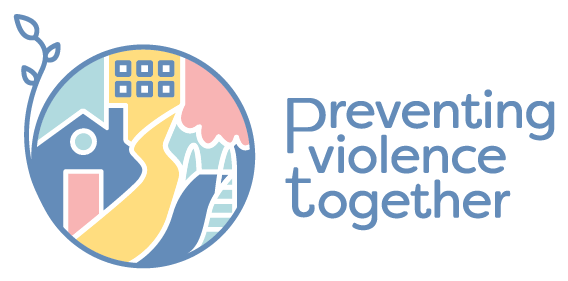Preventing Violence Together is a Western Australian-based initiative aspiring to end violence against women and children through a specific and dedicated focus on primary prevention.
Preventing Violence Together is about supporting shared approaches, consistent practice and confident professionals undertaking primary prevention of violence against women and children throughout Western Australia. It is about fostering a primary prevention sector that is developing in our state.
It is a new and exciting collaboration co-chaired by the Centre for Women’s Safety and Wellbeing and Stopping Family Violence, two established, state-wide organisations, with a shared purpose of supporting women and children experiencing family, domestic and sexual violence, to be safe and free from violence. Both organisations are pleased to introduce Preventing Violence Together as their next step in violence prevention leadership in Western Australia.
The initiative is based on the understanding that, in Australia, primary prevention of violence against women and children is an emerging field. Preventing Violence Together was formed to foster a vital prevention workforce to support this necessary work in Western Australia. A key aim is that as this prevention sector grows it will contribute experience, knowledge and expertise to inform policy and priorities of governments, researchers and leading experts in our state as well as across the country.
Primary prevention is about targeting the fundamental causes of violence against women and children. Primary prevention is about social and structural change that may take years and possibly generations to see lasting results. In other words, it is distinctly different to acting at an earlier stage to stop the risk of the problem occurring (early intervention) or responding after the problem has happened (tertiary intervention/response).
As a relatively new area of specific endeavour and expertise in Australia much has been done to set the foundations for effective primary prevention of violence against women and children. In less than a decade, conceptual frameworks, guides, research and evaluation have been developed and elevated at a national level to show that this violence is preventable. This work has set gender-based drivers as key to solving violence against women. It has also highlighted the equally critical importance of addressing the impacts of colonisation, racism, ableism, and homophobia and the structural inequalities, discrimination and disadvantage enabling these conditions.
Government policy frameworks across the country highlight the significance of primary prevention in reducing family, domestic and sexual violence and other forms of violence against women.
These newer understandings about preventing violence against women require different activities, different ways of working as well as specialised knowledge and skills. There is no ready-made primary prevention workforce or extensive expertise widely available to undertake this important work. As such, it is a work in progress as professionals, community members and leaders, organisations and sectors throughout the country commit to action on primary prevention.
In Western Australia, family, domestic and sexual violence services as well as other sectors and industries understand the value of primary prevention and the need for action. The WA State Government also prioritises primary prevention in the long-term policy frameworks for reducing family and domestic violence, strengthening gender equality and lifting the health profile of women and girls. Some organisations and communities in our state are undertaking primary prevention work as well. These efforts are commendable but can only go so far without a clear overarching strategy for primary prevention as well as the workforce needed to effectively progress this work.
While there are limited resources and support in Western Australia to advance these efforts in a planned, sustainable and impactful way, the state government’s commitment to develop a primary prevention framework is timely. A survey conducted in the second half of 2020 by what was then the Women’s Community Health Network of WA, the former Women’s Council for Domestic and Family Violence Services and Stopping Family Violence highlighted that existing primary prevention practitioners would value practice support and being part of communities of practice.
The survey findings showed that practitioners want to be able to share information about their work, know what others are doing, easily find credible, evidence-based resources, extend their knowledge and skills, and know that their activity is connected to a larger effort that is making positive and sustainable change.
Preventing Violence Together is being established in this context. It is designed to support primary prevention practice and activity in Western Australia by:
- engaging with communities across the state to support prevention of violence against women action and activities.
- supporting the development of expert practitioners, organisations and sectors that lead evidence-informed primary prevention activities.
- providing structural support and facilitating collaboration and partnerships to strengthen primary prevention practice and activities across systems, organisations and communities.
- promoting best policy and practice to government, industry and organisations to prevent violence against women.
In the coming months Preventing Violence Together will be undertaking several key activities. These will be about setting the foundations for practice and workforce development in primary prevention in Western Australia. Knowledge and skills development about primary prevention will be a focus along with establishing mechanisms for sharing information, connecting workers with each other and with other experts.
There is an important opportunity now and into the future for this initiative to work in partnership with governments, sectors, leaders, communities, and alliances aiming to end violence against women and children through primary prevention.
—
Alison Evans and Damian Green
Co-Chairs
Preventing Violence Together
